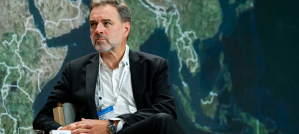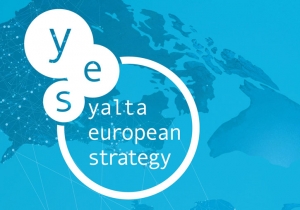News
Three members of the Board of YES have been included in “Top 10 Ukraine’s Promoters in the World” expert rating
Board of the Yalta European Strategy (YES) discussed Ukraine’s European prospects in Warsaw
On November 10, 2011, during a visit toWarsaw, the Board of the Yalta European Strategy (YES) discussed prospects ofUkraine’s integration with the European Union and the role of Poland, currently holding Presidency in the EU, in the negotiations on the EU-Ukraine Association Agreement.
Board of the Yalta European Strategy (YES) to discuss EU-Ukraine Association Negotiations in Warsaw
On November 10, 2011, during its visit to Warsaw, the Board of the Yalta European Strategy (YES) will discuss prospects of Ukraine’s integration with the European Union and the potential impact of the Polish EU Presidency on the negotiations on the EU-Ukraine Association Agreement.
Shimon Peres: Speech at the 8th Annual Meeting of YES
This article is available only in Russian
The winners of educational programs of the Victor Pinchuk Foundation took part at the 8th Yalta Annual Meeting
Twenty three Zavtra.UA scholarship holders and five winners of the WorldWideStudies competition took part in the 8th Annual Meeting of Yalta European Strategy (YES) held September 15 -18, 2011, in Livadia palace, Yalta.
Global changes mean not only challenges but opportunities too – Kwasniewski
Fundamental changes taking place in the modern world give rise to challenges, as well as new opportunities, stated President of Poland (1995–2005), Chairman of the Board of YES Aleksander Kwasniwski at the concluding session of the 8th Yalta Annual Meeting
To remain the global leader, the European Union should enlarge – Kwasniewski
Touching the changes in architecture of the global world order, Kwasniewski noted: “Nobody doubts that we are in the process which would build the world architecture in 21st century
Ukraine possesses high economic potential which is not used in full – Aslund
Ukraine, which current economic growth is equal to 4%, may double the growth rate and reach Turkey, which demonstrates 9% growth today. This statement was made by Anders Aslund, Senior Fellow of Peterson Institute for International Economics, one of the leading world’s experts in Ukrainian economy, in the discussion on prospects of Turkey and Ukraine development. “Ukraine possesses high economic potential which is underused,” he said.
Information society has been moving towards “global intelligence” – Milner
Key global trends in the information sector will result in formation of a “global intelligence” composed of all people connected via PCs, declared Yuri Milner, founder of Russia-based Digital Sky Technologies, during the discussion “Key Trends That Will Shape Tomorrow’s World” at the 8th Yalta forum of YES.
Globalization changes the context of religion - Tony Blair
Religion in XXI century will play an important role in society development as before, and if politicians underestimate the need for peaceful coexistence of religions, this may result in conservation and exacerbation of the existing conflicts and may give rise to new ones. This idea was voiced out in the course of discussion “Key Trends That Will Shape Tomorrow’s World” by Anthony Charles Lynton (Tony) Blair, Prime Minister of the United Kingdom (1997 – 2007) at the 8th Annual Meeting of YES.












